10 Of Schumann's Compositions in Honor of His Birthday
Yesterday was Robert Schumann's 207th birthday. Schumann was a romantic era composer with a very interesting life. He was a very smart composer, but suffered from bipolar disorder. In this article, I will write about 10 of Schumann's compositions; but first, here's a little bit about Schumann:
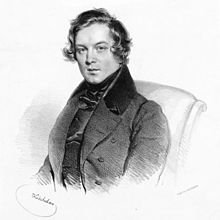
The Life of Schumann
Robert Schumann was born on June 8th, 1810, in Zwickau (Kingdom of Saxony). From a young age, Schumann was composing. He composed his first piece at the age of 7, and although he disregarded any formal rules in writing, his compositions were still considered impressive for his age. It was also at the age of 7, that Schumann would first receive instruction for general music and piano. But, his childhood was spent learning literature as much as music, due to his father's career as a bookseller, publisher, and novelist (A quality I think would help him later on with his vocal works).
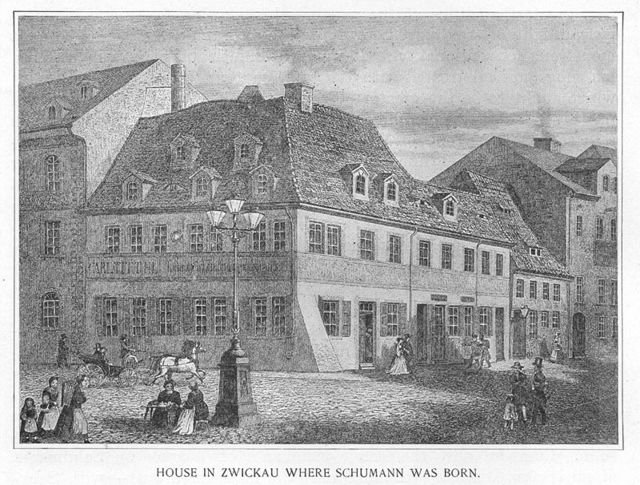
Schumann's love of music started when he saw Ignaz Moscheles, a composer and pianist, playing at Karlsbad (Schumann would later be inspired by the works of Beethoven, Schubert, and Mendelssohn). Schumann's father would encourage Schumann to pursue music until his death in 1826 (Schumann was 16). From then on, none of the guardian figures in Schumann's life would encourage him to pursue music. In 1828, Schumann left school and went to Leipzig to study law (To meet the criteria to gain his inheritance).
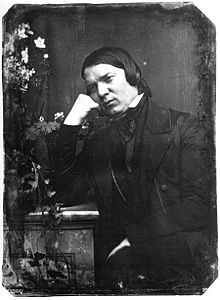
In 1830, Schumann would hear the Italian violinist, violist, guitarist, and composer Niccolò Paganini play in Frankfurt, and write to his mother "My whole life has been a struggle between Poetry and Prose, or call it Music and Law." He would resume piano lessons at the age of 20 (with his old teacher), with the ambition of becoming a concert pianist. This ambition would be ruined when Schumann's right hand was permanently damaged (how is speculation, some say it was a finger strengthening device, others say it was a chronic illness that hurt the hand. Clara Schumann disputed the finger device idea). This caused Schumann to abandon his dreams of a career as a concert level pianist, and take up composition. The first case of what is now called program music, or the combination of literary ideas with musical ones is said to be Papillons, Op. 2 (Butterflies), Schumann's depiction of events from Jean Paul's novel Die Flegeljahre.
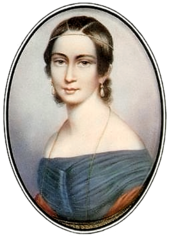
On September 12th, 1840, Schumann married 20 year old Clara Wieck (Schumann) after a long legal dispute with her father about marrying her. Clara, although delicate in appearance, was actually quite strong-willed and exhilarant, keeping a strict touring schedule and bearing multiple children. Clara was Schumann's most valid inspiration, critic, and confidant.
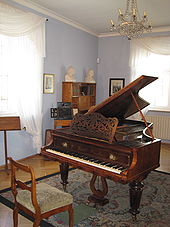
From 1832 - 1839, Schumann wrote almost uniquely piano pieces. 1840 is considered to be one of Schumann's most productive years, in which he wrote at least 138 songs. This is likely because of how secretive, he had to keep his relationship with then Clara Wieck. Schumann would often wait in a nearby city for hours just to see his future wife for just a few minutes after one of her concerts. As a result of this, he wrote many pieces for her, including a piece called Widmung which uses a theme from Franz Schubert's Ave Maria. In 1841, Schumann would write two of his four symphonies, No. 1 in B flat major "Spring," and No. 4 in D minor (it was performed that year, but not published until much later [Opus 120]). Schumann dedicated all of 1842 to chamber music, including the Piano quintet in E-flat Major, the Piano Quartet, and three String Quartets.
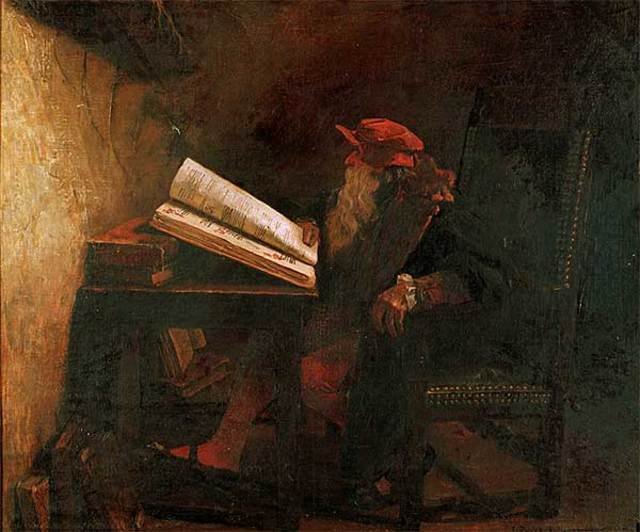
From 1844 - 1853, Schumann became obsessed with setting Johann Wolfgang Van Goethe's Faust to music. Faust is the story of a young man name Faust who is depressed with his dull life as a scholar. Faust tries to kill himself, and after failing, attempts to make a deal with the devil, to gain all the knowledge in the world and power. The devil's representative, Mephistopheles, appears to Faust and agrees to serve him in this for a set number of years, at the end of which, the devil takes Faust's soul. Depending on the version, Faust uses Mephistopheles powers in different ways, but particularly in Goethe's version, Faust uses Mephistopheles powers to seduce a young and innocent woman named Gretchen, who's life is ruined when she gives birth to Faust's son. When learning of what Faust has done, and the evil within his son, she drowns the boy. Leading to her execution for murder. Gretchen is spared, and taken to heaven because of her innocence. In Goethe's version, Faust is spared by God, due to Gretchen's begging. But, in other versions, the deal is carried out, and Faust, taken to hell. Schumann became obsessed with setting this literary work to music, and began to experience a nervous breakdown. Whenever he went to work, he would have fits of shivering and foreboding death, and getting a feeling of horror from high places, all metal tools, and drugs. At this point, Schumann also heard the sound of an A5 playing in his ears constantly.
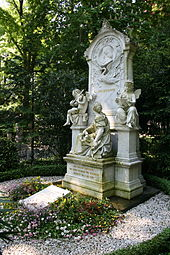
In 1853, Schumann would meet his close friend Johannes Brahms (You might recall that I talked about this in my Brahms Birthday Post). They would collaborate for several years. On February 27th, 1854, Schumann attempted suicide by throwing himself off a bridge into the Rhine river. After he failed and was rescued by boatmen, he asked to be put in a mental asylum. He remained there until his death in 1856.
10 Compositions
10. Carnaval
You can tell that Schumann was a pianist based on this piece. It sounds like a very early form of jazz, but a mix of jazz and classical. Actually, this piece originates from variations of a theme from a Sehnsuchtswalzer by Franz Schubert. Schumann was one of the earlier composers who discovered Schubert's work and helped to make them famous. I did not realize that this piece came from a Schubert piece until I read about it on Wikipedia.
9. Toccata op. 7
This piece sounds pretty fast. It does not sound very structured. It actually sounds a lot like Samuel Barber's Sonata. It has its up points and down points. There are some places that I really like, and others that I despise.
8. Cello Concerto
I could see the cello part from this concerto expressing an emotion of sadness, or even an emotion of love. I tend to lean towards sadness though, based on the overall sound. Sometimes sadness and love can coexist too. Schumann wrote this piece in a period of 2 weeks, which is quite impressive.
7. Piano Quintet in E-Flat Major
This is one of Schumann's most famous pieces. If you'll recall from The Life of Schumann, this piece (and most of his chamber works) were written in the year 1842. This piece actually sounds quite cool, I can hear some similarities to Mendelssohn in this piece. Which isn't surprising, considering that Mendelssohn and Schumann were close friends.
6. Symphony no. 4 in D Minor
This piece, and Schumann's first symphony were written in 1841, this piece being the last published symphony, but second written. This piece has a much more different sound to it than Schumann's first symphony had, which is surprising, considering that they were written at the almost exact same time. This piece sounds sad, like a piece played at a funeral, while Symphony no. 1 is very lively, and energetic. Based on the key of this symphony, I wonder if his inspiration was Beethoven's 9th (also in D minor).
5. Ich Grolle Nicht
This piece is from the song cycle Dichterliebe, and the title, Ich Grolle Nicht, translates to "I bear no grudge." Overall, this piece is very fun to listen to. It is energetic and short. I have included it in several lists, but I only recently learned that it is part of this song cycle.
4. Der Arme Peter
I was recently assigned this song cycle for voice (to learn this summer). This song cycle contains 3 songs, all telling the story of this guy named peter who likes a girl named Gretel, but is depressed because she is marrying a guy named Hansel. My voice teacher asked me why I thought Peter felt sad and alone, and I remarked "Oh! Does Peter have a thing for Hansel?" little did I know that Hansel is a guy. . . Anyway, you can read the translation of the song cycle here:
3. Piano Concerto
This is another one of Schumann's most famous pieces. The theme in the beginning sounds kind of like Chopin's funeral march to me at least. Until, he utilizes a bit of a faster theme. Here is Schumann's Piano Concerto:
2. Liederkreis (Song Cycle)
I really like the singer, named Dietrich Fischer-Dieskau, in this recording I found. He is one of my favorites ever since I heard him do Schubert's Erlkonig. This cycle uses poetry by Joseph Eichendorff from his collection of poems called Intermezzo. Here is Liederkreis:
1. Symphony no. 1
I have never really heard one of Schumann's symphonies. This symphony is actually very energetic (at least in the first movement). The first movement is one of the most energetic movements I've heard in a symphony. Schumann also does a great job at utilizing themes (and developing them). For example, the second movement has a very tender and structured theme. Schumann sketched this symphony in 4 days, finishing it within a month. Felix Mendelssohn conducted this symphony at its premiere. It was also named the Spring Symphony (I can see why). Here is Schumann's first symphony:
Sources
Information
Wikipedia (Schumann)
Wikipedia (Faust)
Wikipedia (Symphony no. 1)
Photos
Wikipedia (Schumann)
Wikipedia (Faust)
Previous Composer Birthdays (In order by how recent it was)
6/8 - Robert Schumann
5/22 - Richard Wagner
5/12 - Gabriel Fauré
5/7 - Johannes Brahms
5/7 - Pyotr Ilyich Tchaikovsky
4/1 - Sergei Rachmaninoff
3/21 - Johann Sebastian Bach
3/4 - Antonio Vivaldi
3/1 - Frédérick Chopin
2/28 (29) - Gioachino Rossini
2/3 - Felix Mendelssohn
1/31 - Franz Schubert
1/27 - Wolfgang (Amadeus) Mozart
The Next Birthday will be Richard Strauss on June 11th.
Thanks for reading this! Schumann is probably one of the most well known, and influential composers of the romantic era. And even through hardships, he had friends and family that supported him. As always, please remember to leave feedback, today's question: Do you think Schumann's obsession with Faust was caused by his insanity, or was his insanity caused by his obsession with Faust? Please remember to check back later!

Also remember to check for: My weekly 7 post, As Well As My Composer Birthday Posts
Make sure to check out my Minecraft server themed on Steem, The Ip: is steemcraft.mcph.co!!
Excellent post!
Thanks!
Excellent collection! I Love schumann! Well done :)) upvoted you and following!
Thanks! I followed back.
Thanks for reminder of great musician!
@cmp2020 nice post :)